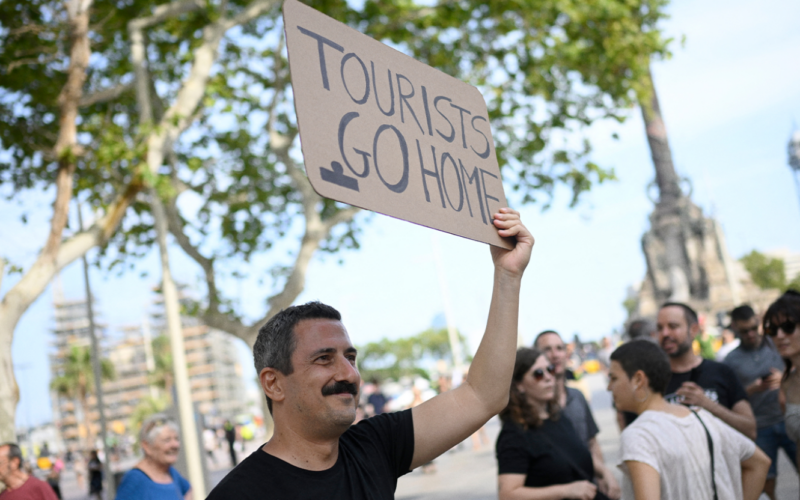Barcelona, a city celebrated for its rich culture, stunning architecture, and vibrant atmosphere, is grappling with the overwhelming impact of mass tourism. The influx of millions of visitors each year has transformed the city into one of the world’s most popular tourist destinations, but it has also brought significant challenges. The strain on local infrastructure, the erosion of traditional neighborhoods, and the rising cost of living have led many residents to voice concerns that their beloved city is being overrun. However, while the problems are undeniable, simply shutting the door on tourists is not the answer.
Over the past few decades, Barcelona has experienced an exponential rise in tourism. Attracted by the city’s unique blend of historical sites, such as the Sagrada Família and Park Güell, its Mediterranean beaches, and a thriving food and nightlife scene, tourists from around the globe flock to Barcelona year-round. This surge in visitors has turned tourism into a cornerstone of the local economy, generating jobs and revenue that the city heavily relies on.
For many Barcelona residents, the impact of mass tourism is deeply personal. Neighborhoods that once had a strong sense of community are now filled with souvenir shops, fast-food chains, and rental apartments catering to tourists. The character of these areas has changed, and the traditional way of life is disappearing. Long-standing businesses that served locals are being replaced by establishments that cater to the transient tourist crowd, eroding the city’s cultural identity.
While the problems associated with mass tourism are clear, finding a solution is complex. Tourism is a vital part of Barcelona’s economy, and any drastic reduction in visitor numbers could have severe economic consequences. The city cannot simply afford to turn its back on the industry that supports so many livelihoods.
Instead, the challenge lies in finding a balance between welcoming tourists and preserving the city’s character and livability for its residents. This requires a comprehensive approach that involves both local authorities and the tourism industry working together to create sustainable practices that benefit everyone.








